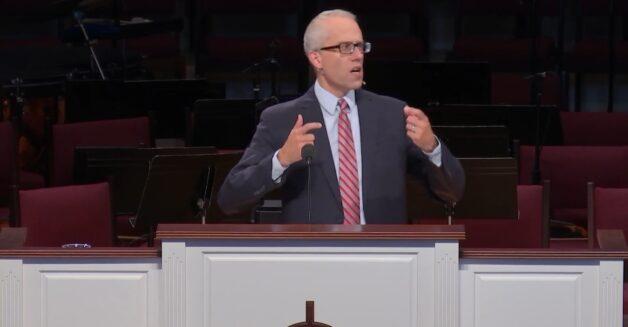It Didn’t Go Away After All

I am a Gen Xer. Born in the late ’70s and coming of age in the ’80s and ’90s, I remember when I was a part of the “next” generation, the troubled Kurt Cobain generation, the cohort of young people who would spell doom for the church, if not for the entire country. When I was in college, we read Douglas Coupland’s Generation X, we pondered the possibility of moral absolutes, and we talked a lot about postmodernism.
As a young Christian eager to defend the faith and learning to think for myself, I devoured all 600 pages of D.A. Carson’s award-winning book The Gagging of God: Christianity Confronts Pluralism (1996). It was just the book I needed as I thought for the first time about hermeneutics, contextualization, and these French philosophers named Derrida and Foucault. I graduated from college in 1999, taught a Sunday school class on relativism at my church that summer, and headed off to seminary.
Strange, though, the kerfuffle over postmodernism didn’t last as long as many feared. True, people were still talking about it and publishing about it through the first decade of the new millennium, but the ism was losing its ability to draw a crowd. Derrida and Foucault were old news in the academy, and by the 2010s Christian complaints against postmodernism sounded quaint, yesterday’s news, the sort of thing church people started talking about when no one else did anymore. Postmodernism was dead.
Until it wasn’t.
Here is Carson talking about “radical hermeneutics and deconstruction” in The Gagging of God. See if his imaginary description of college life rings true.
Miss Christian goes off to the local state university, full of zeal and the knowledge of a few fundamental truths. There she will not find lecturers who will devote much time to overturning her truths. Rather, she will find many lecturers convincing her that the meaning in her religion, as in all religion, is merely communal bias, and therefore relative, subjective. Truth, whatever it is, does not reside in an object or idea or statement or affirmation about reality, historical or otherwise, that can be known by finite human beings; rather it consists of fallible, faulty opinions held by finite knowers who themselves look at things that certain way only because they belong to a certain section of society. (36)
Replace “local state university” with “Christian liberal arts college,” add words like “white” or “Western” or “southern evangelicalism,” and the world of 1996 sounds much like contemporary evangelicalism right now. The quickest way to discredit one’s theological views or ecclesiastical practice is to engage a fallacy of C.S. Lewis called “Bulverism,” where one reduces those beliefs and behaviors to Whiteness or patriarchy or Western hegemony or anything else that seems bad enough not to be defended and big enough not to be falsifiable.
Of course, the basic claim of Carson’s lecturer—that all of us speak and think and act out of our experiences and social location—is, on one level, undeniably true. None of us are infallible. We are finite human beings with finite knowledge. Our beliefs and behaviors are shaped by a host of factors—not just by sex and skin color, but by where we grew up, where we went to school, what our parents were like, what we fear, and whom we want to impress. It’s not just conservative evangelicals who speak out of a particular culture or moment in time. The same is true for egalitarians, progressives, and everyone else. We must all be careful lest the things we believe are less about the Bible and the historic Christian faith and more about our country, our class, and what our peer group deems acceptable. Chastened epistemology has its place.
But it must stay in its place. Looking for blind spots is one thing. Acting as if we are blind is another. We don’t have to let sociological fads and ill-defined ‘isms’ set the agenda when we have the necessary theological categories already. The point is the same: we can know things truly even if we don’t know things exhaustively.
To be sure, we must always be open to correction. But if God has not been gagged, and if the Spirit has been at work in the history of the church, let us not relegate and relativize the greatest theologians, preachers, and practitioners of the past based on our twenty-first century obsessions with race, gender, and sexuality. Texts have meanings (Matthew 9:12-13), and teachers are given to God’s people that they might authoritatively explain those texts (Nehemiah 8:5-8; 2 Timothy 4:1-2). When Paul reasoned from the Scriptures (Acts 17:2, 7), reasoned in the hall of Tyrannus (Acts 19:9) and reasoned with Felix (24:25), Paul believed he was teaching God’s truth, not his male, Jewish, Roman Imperial interpretation of things.
We may belong to a certain section of society, but God does not. And He knows how to make Himself heard.



